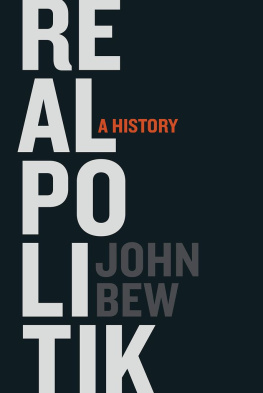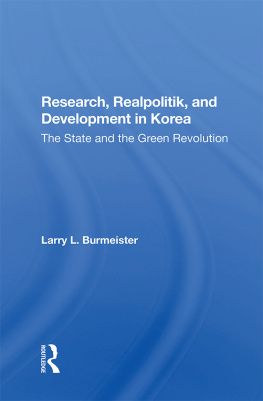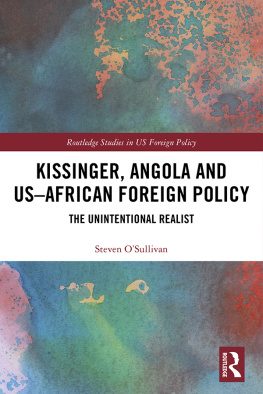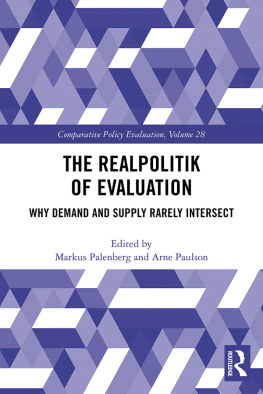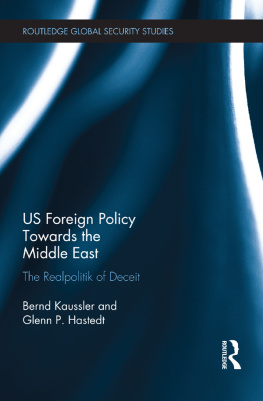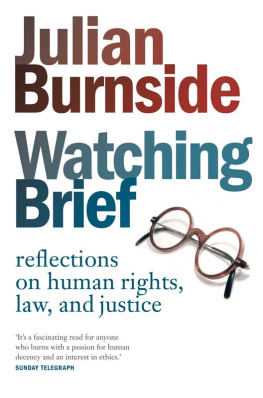REALPOLITIK

Oxford University Press is a department of the University of Oxford. It furthers the Universitys objective of excellence in research, scholarship, and education by publishing worldwide.
OxfordNew York
AucklandCape TownDar es SalaamHong KongKarachi
Kuala LumpurMadridMelbourneMexico CityNairobi
New DelhiShanghaiTaipeiToronto
With offices in
ArgentinaAustriaBrazilChileCzech RepublicFranceGreece
GuatemalaHungaryItalyJapanPolandPortugalSingapore
South KoreaSwitzerlandThailandTurkeyUkraineVietnam
Oxford is a registered trademark of Oxford University Press in the UK and certain other countries.
Published in the United States of America by
Oxford University Press
198 Madison Avenue, New York, NY 10016
John Bew 2016
All rights reserved. No part of this publication may be reproduced, stored in a retrieval system, or transmitted, in any form or by any means, without the prior permission in writing of Oxford University Press, or as expressly permitted by law, by license, or under terms agreed with the appropriate reproduction rights organization. Inquiries concerning reproduction outside the scope of the above should be sent to the Rights Department, Oxford University Press, at the address above.
You must not circulate this work in any other form and you must impose this same condition on any acquirer.
Library of Congress Cataloging-in-Publication Data
Bew, John.Realpolitik : a history / John Bew.
pages cm
Includes bibliographical references and index.
ISBN 978-0-19-933193-2 (hardback)
eISBN 978-0-19-933195-6
1.RealismPolitical aspects.2.International relationsPhilosophy. 3.World politics.I.Title.
JZ1307.B48 2015
327.101dc23
2015013935
Contents
REALPOLITIK
This book offers the first comprehensive history of Realpolitik as a concept that moved from Germany into the mainstream of Anglo-American political discourse. The one that occurred in Germany in the mid-nineteenth century provided the context for the birth of Realpolitik, so it is not surprising that the two terms are often found side by side.
To many, Machiavelli remains the consensus father of Realpolitikthe individual with whom the term is most commonly associated. Yet other supposed heroes of Realpolitik, from later eras, have recently enjoyed a return to prestige. Among them are Viscount Castlereagh, Britains foreign secretary from 1812 to 1822, and Count Klemens von Metternich, the Austrian Empires foreign minister of the same era, and its chancellor from 1821 to 1848. In a book about Realpolitik, Bismarck certainly deserves a prominent place, thoughas we shall seeit is mistaken to see him as its theoretician-in-chief.
The canon of Realpolitik, as it is conventionally understood, links together these nineteenth-century statesmen with some of the most prominent figures of twentieth-century American foreign policy, particularly of the Cold War era. George Kennan, often taken as a paragon of American diplomatic realism, was a scholar of Bismarcks foreign policy. Yet the assumption that Kissinger is the inheritor of a Bismarckian tradition of Realpolitik is, it will be argued, misleading.
As something born in the dark heart of Europe, imported from Germanythe great bogeyman of the two world warsRealpolitik has always had an odd place in Anglo-American political discourse. Usages One might well contrast it with the smoother inflexions of Frenchthe traditional language of diplomacyof which dtente provides a notable example.
Over the last decade, Realpolitik has been shorn of some of these negative connotations for a number of reasons. The first is that the return of great power rivalries and the fraying of the international order has evoked comparisons with periods in our past when Realpolitik was seen to provide a useful tool of statecraftchiefly, nineteenth-century Europe, when great powers buffeted each other. The second is that Realpolitik has been presented as a necessary antidote to the perceived excess of idealism in Anglo-American foreign policy of the postCold War eraa return to the real over the utopian. In this incarnation, it is simply understood as a cool, circumspect approach to statecraft, deliberately contrasted to what is presented as the nave idealism of others.
Today, this modernized version of Realpolitik has some new friends and unlikely advocates. Arguably the most liberal president to inhabit the White House in modern history has been as consciously realist as any of his predecessors in the field of foreign policy. For this reason, Realpolitik is no longer a dirty word in the Democratic Party as it was in the 1970s and 1990s. Everybody always breaks it down between idealist and realist, remarked President Obamas former chief of staff, Rahm Emanuel, in an April 2010 article in the New York Times. If you had to put him in a category, hes probably more realpolitik, like Bush 41 youve got to be cold-blooded about the self-interests of your nation.
The reintroduction of this word as a term of praise can be dated from about 2005, when difficulties following the American-led invasion of Iraq were at their height, and the campaign in Afghanistan was also beginning to unravel. It was not so clear what it meant in practice, however. As a biographer of Lord Castlereagh, I had used it myself on a number of occasions to describe, in the broadest possible terms, aspects of Castlereaghs foreign policy, without much thought of its actual origin. Yet, when Castlereagh was put forward as an exemplar of Realpolitik and invoked in debates about contemporary foreign policy, I did not always recognize the individual who was portrayed. I also noted that in past periods such as the 1930s, historical analogies had been used to address contemporary foreign problems in ways that were not entirely accurate, or enlightening. Neville Chamberlain, British prime minister of the late 1930s, had been well versed in the foreign policies of Castlereagh, as well as George Canning, Castlereaghs successor. In rationalizing the policy of appeasement, Chamberlain had evoked these precedents as examples of Realpolitik. Yet, of course, this had not prevented the disastrous collapse of British foreign policy in 19389. In other words, it seemed that the notion was a slippier signifier than I had once presumed. It was necessary to treat it with some care.
Realpolitik, it became clear on further investigation, was one of those words borrowed from another language that is much used but little understood. In modern usage, it has come to denote a posture, or a philosophical inclination, rather than anything more substantive (such as an approach to politics, or a theory of international relations). Of course, it is absurd to expect contemporary practitioners of foreign policy to know the provenance of every word they use, and it is perhaps all too typical of academics to retreat to the library with a roll of their eyes. In 1934, the English historian A. J. P. Taylor wrote that a nations foreign policy was based on a series of assumptions, with which statesmen have lived since their earliest years, and which they regard as so axiomatic as hardly to be worth stating. It was the duty of the historian, then, to clarify these assumptions and to trace their influence upon the course of every-day policy.
The true meaning of Realpolitik

